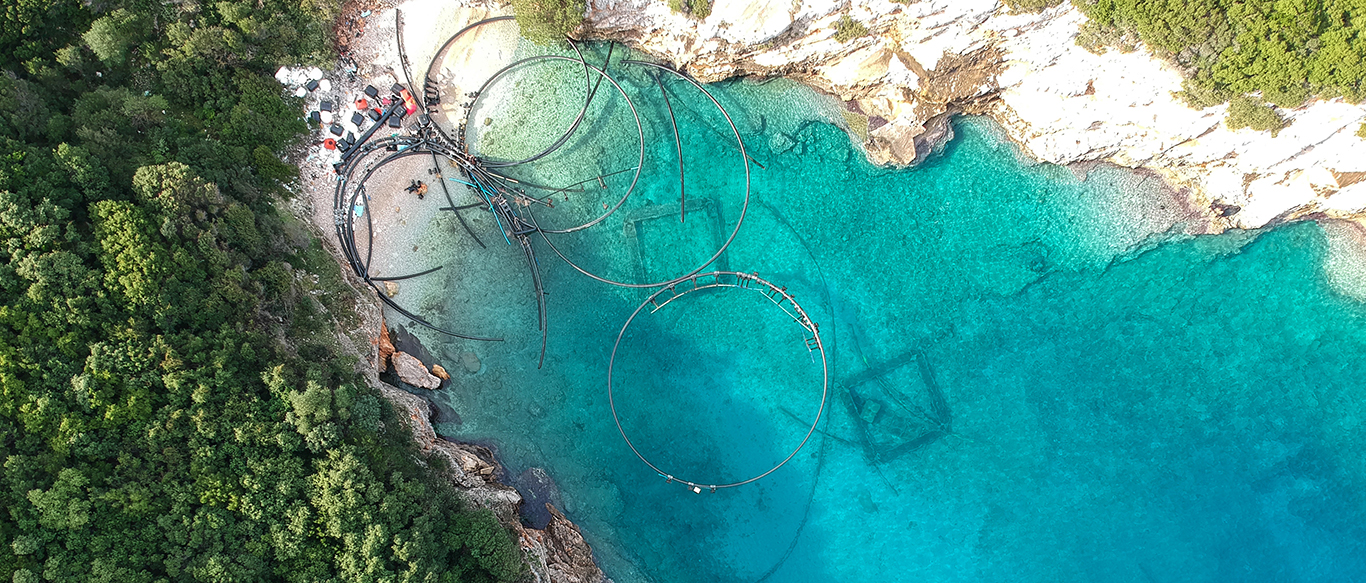SKARV: More eyes on marine pollution
In recent years, our projects have increased in size, with different requirements for the preparations. For example, more intensive scouting had to be done and surveys were also carried out above water in addition to the usual reconnaissance dives. An aerial reconnaissance turned out to be a logical and valuable addition here and this technique showed that in Mediterranean waters in particular, where visibility is generally good, we could even look through the water surface to a certain depth.
An example of this was our legendary Journey to Ithaca project in 2021, with which we cleaned up a completely abandoned and partly submerged aquaculture. The company that had gone bankrupt in 2012 had left behind fish farm cages and other equipment that polluted the area endangering the local community, marine life as well as maritime traffic. In September 2020, Ianos, a rare hurricane-like storm caused the tons of industrial type of plastic pipes, fishing nets, nylon ropes, concrete blocks, plastic buoys, large rusty metal pieces and all kinds of waste to be carried away, later to be found floating on the surface of the sea, laying on the seabed and on the beaches.
Here we were able to detect a large part of the pollution from the air, then based our plan on this and make the necessary targeted preparations. From this moment on, drones were an indispensable part of our projects.
In October 2022, we further developed this technique under the guidance of conservation biologist, Dr Sol Milne of Wolf Fish Ltd. He and Ghost Diving Greece Coordinator, Nikos Vardakas, have poured this into the research project ‘Coasts Untangled‘, aiming at developing aerial surveying methods to better see into water with rugged & complex bottom topography, coupled with scuba-diving transect surveys to locate lost fishing gear, ultimately aiding their removal. The project was supported by Ocean Conservancy’s Small Grants Program – Global Ghost Gear Initiative.
Because this activity has nothing to do with diving, but just like diving requires a lot of (equipment) knowledge and training, we have decided to place this in a separate project / organization called: SKARV.
Skarv is the Norwegian name for Cormorant. The cormorant is one of the waterfowl most often killed by lost or abandoned fishing gear. Because the bird can dive deep and long to hunt fish, fishing gear acts on these animals in the same way as on fish, they become entangled and drown. Our name is a tribute to these amazing birds.
With SKARV our volunteers focus on the use of drones against lost or abandoned fishing gear, marine pollution, and illegal fishing. This is a support initiative for and by volunteers of the Ghost Diving and Healthy Seas organizations.
Follow our work on our Website and Instagram, Facebook, LinkedIN, Twitter, YouTube

